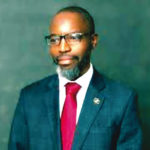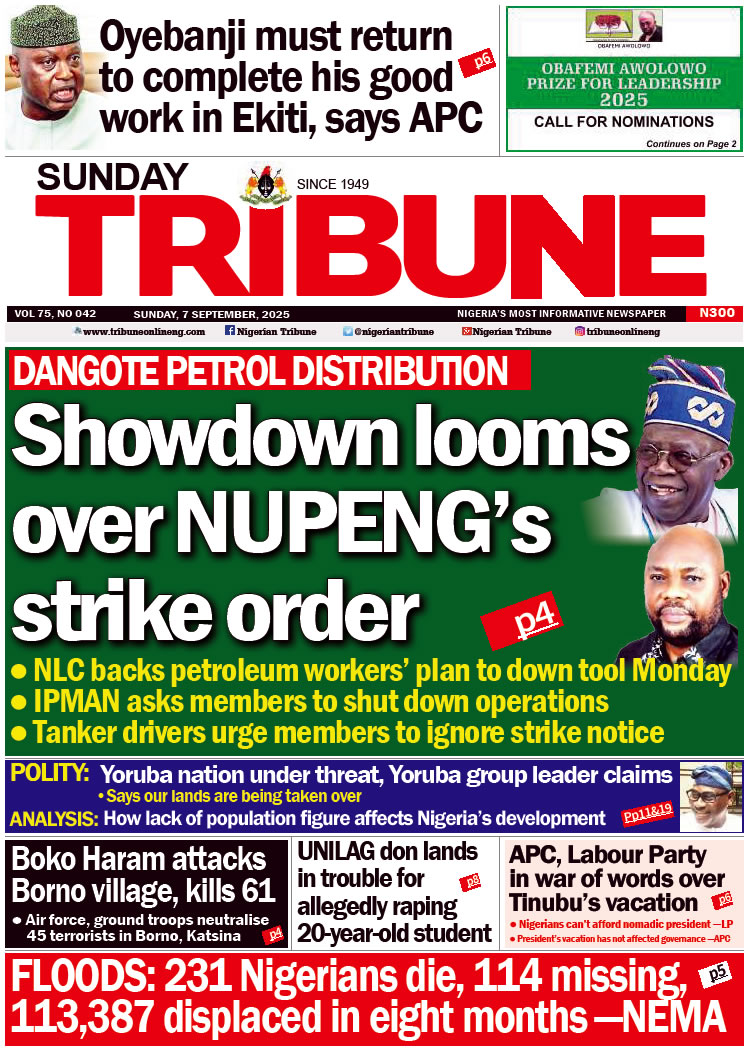Central Bank of Nigeria (CBN) Deputy Governor, Mrs. Aisha Ahmad, has been appointed the chairman of the re-constituted board of the Nigeria Commodity Exchange (NCX) Plc.
In addition, three new directors were appointed for the exchange, out of which Ahmad was one of them.
Others included CBN Director, Development Finance Department, Mr. Yusuf Yila and Dr. Angela Sere-Ejembi.
A statement by the acting Head, Corporate Communications, NCX, Mr. Abiodun Sanusi, said the reconstitution of the board and management was in line with the provisions of the Companies and Allied Matters Act (CAMA) 2020.
The statement said stakeholders had, at the exchange’s Extraordinary General Meeting held on January 4, 2022, unanimously approved the retirement of directors as well as appointment of the three new directors.
Ahmad was subsequently appointed Chairman of the board at the inaugural board meeting which was held the same day.
The newly reconstituted board, along with a Transaction Management Team headed by Mr Elenwor Ihua, who is acting as Interim Coordinator, will temporarily oversee the operations of the exchange, it stated.
Ihua would supervise an independent and transparent process to appoint a new Executive Management Team.
The development marked a critical milestone in the journey to transform the NCX into a world-class commodity trading company within the African and global commodity markets.
The core shareholders thanked the outgoing board and executive management for their patriotic service to the company and wished them all the best in their future endeavours.
Essentially, the move to reposition and revitalise the NCX was made public in January 2021, when the CBN Governor, Mr Godwin Emefiele, disclosed that President Muhammadu Buhari had approved an investment of N50 billion in the exchange as part of efforts to reposition it.
Emefiele, who announced the investment decision at the inaugural meeting of the Steering Committee (SteerCo) for the repositioning of the NCX, had also stated that the Federal Government had also suspended, with immediate effect, the current plan to privatise the exchange.
He added that the decision to suspend the privatisation followed what he described as the unfortunate arbitrage opportunities which the government had noticed in the private sector arrangement, which had become an obstacle in moderating food prices.
According to him, the president had also approved a proposal for the repositioning of the exchange in order to consolidate on the government’s efforts aimed at strengthening the agriculture value chain, part of which includes connecting farmers to markets which are beyond their immediate environments.
Emefiele, who chairs the SteerCo, said the Federal Government’s premier commodity exchange had not been able to catalyse agricultural production due to structural and idiosyncratic challenges.
He had identified the bottlenecks to include limited funding and investment, poor financial performance, deficiency in physical infrastructure (warehouses, laboratories, grading capability), inadequate warehouse receipts and logistics infrastructure.
Others included a lack of broad legal framework and standards-setting as well as lack of supervisory clarity and overlapping supervisory mandates, among others.
According to him, the formation of the SteerCo also included representatives from Nigeria Sovereign Investment Authority (NSIA); Africa Finance Corporation (AFC); Ministry of Budget and National Planning; Ministry of Industry, Trade and Investment; and Ministry of Agriculture and Rural Development to oversee the implementation of the strategic plan.
Emefiele, who had explained that no timeframe had yet been set for the assignment, added that pending approvals, the first launch involving approvals on repositioning, restructuring, setting up various board structures, board committees and governance committees should happen within 90 days.
Meanwhile, the NCX has called on the Federal Government to enact policies that would incentivise agricultural commodity sellers on the one hand, to migrate from the open market to the floor of the exchange to transact their businesses.
The exchange, on the other hand, also called for a framework that would force all high-level transactions in commodities to be traded on the organised market.
The General Manager, Operations, NCX, Mr Benson Lawal, said though President Muhammadu Buhari-led administration must be commended for significantly increasing funding intervention to the agricultural sector as well as funding the exchange, this may not translate to the viability of the NCX unless effective policies were introduced.
Only about seven commodities are currently traded on the floor of the exchange, partly due to low patronage.
The Federal Government through the Central Bank of Nigeria (CBN) recently embarked on a process to recapitalise the exchange with N50 billion, to check price arbitrage and enable it achieve its primary mandate.
Lawal argued that the movement or success of the exchange was not dependent on the amount of money committed to it but on what stakeholders, especially farmers, stand to benefit from operating in the formal market rather than the open market which they are already used to.
Speaking when the Agriculture Commodity Forum (ACF), led by its Chairman, Mr Bashir Yusuf Ibrahim, paid a courtesy call on the exchange, Lawal said, for the government to achieve results even as it seeks to recapitalise the exchange, it must get more participation on the floor especially those willing to sell and others who are ready to buy as well.
For instance, he said if the regulation to compel all high volume transactions to be migrated to the exchange is in place, the country would earn billions of foreign exchange from commodities with export potentials adding that the government would also be able to get reliable data with which to work with relating to volume and standards of various commodities.
He explained that for commodity traders who have since been used to the open market to embrace the formal market, they definitely needed to be incentivised as they would want to first know what they stand to achieve by trading on the floor.
He, however, said unlike on the floor, the risk of default remained high Open market, while people buy commodities at their face-value, unable to immediately determine the level of impurities.
On the other hand, he noted that the exchange was liable for any default adding that, “How you are going to get your money for a commodity sold is the responsibility of the exchange.”
He added that the NCX had a resemblance of a perfect market and links traders to external markets.
Lawal also said the government needs incentives that will compel buyers and sellers to meet on the exchange.
YOU SHOULD NOT MISS THESE HEADLINES FROM NIGERIAN TRIBUNE
We Have Not Had Water Supply In Months ― Abeokuta Residents
In spite of the huge investment in the water sector by the government and international organisations, water scarcity has grown to become a perennial nightmare for residents of Abeokuta, the Ogun State capital. This report x-rays the lives and experiences of residents in getting clean, potable and affordable water amidst the surge of COVID-19 cases in the state…
Selfies, video calls and Chinese documentaries: The things you’ll meet onboard Lagos-Ibadan train
The Lagos-Ibadan railway was inaugurated recently for a full paid operation by the Nigerian Railway Corporation after about a year of free test-run. Our reporter joined the train to and fro Lagos from Ibadan and tells his experience in this report…
[ICYMI] Lekki Shootings: Why We Lied About Our Presence — General Taiwo
The Lagos State Judicial Panel of Inquiry probing the killings at Lekki Toll Gate, on Saturday resumed viewing of the 24hrs footage of the October 20, 2020 shooting of #EndSARS protesters by personnel of the Nigerian Army…
ICYMI: How We Carried Out The 1993 Nigerian Airways Hijack —Ogunderu
On Monday, October 25, 1993, in the heat of June 12 annulment agitations, four Nigerian youngsters, Richard Ajibola Ogunderu, Kabir Adenuga, Benneth Oluwadaisi and Kenny Razak-Lawal, did the unthinkable! They hijacked an Abuja-bound aircraft, the Nigerian Airways airbus A310, and diverted it to Niger Republic. How did they so it? Excerpts…
Sahabi Danladi Mahuta, a community mobiliser and APC chieftain. Mahuta spoke to select journalists at the sidelines of an Islamic conference in Abuja recently. Excerpts…
WATCH TOP VIDEOS FROM NIGERIAN TRIBUNE TV
- Let’s Talk About SELF-AWARENESS
- Is Your Confidence Mistaken for Pride? Let’s talk about it
- Is Etiquette About Perfection…Or Just Not Being Rude?
- Top Psychologist Reveal 3 Signs You’re Struggling With Imposter Syndrome
- Do You Pick Up Work-Related Calls at Midnight or Never? Let’s Talk About Boundaries






